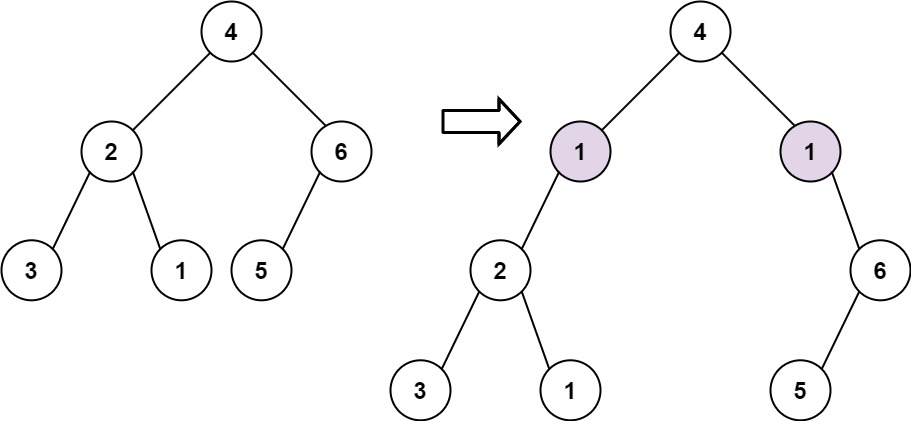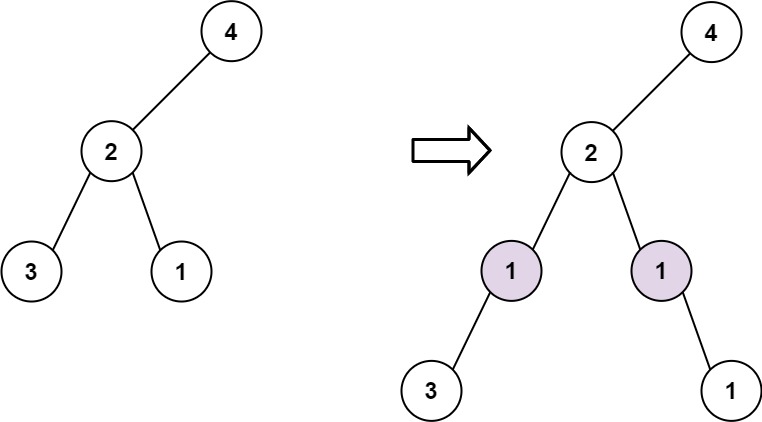623. Add One Row to Tree
1. Description
Given the root of a binary tree and two integers val and depth, add a row of nodes with value val at the given depth depth.
Note that the root node is at depth 1.
The adding rule is:
- Given the integer depth, for each not null tree node cur at the depth depth - 1, create two tree nodes with value val as cur’s left subtree root and right subtree root.
- cur’s original left subtree should be the left subtree of the new left subtree root.
- cur’s original right subtree should be the right subtree of the new right subtree root.
- If depth == 1 that means there is no depth depth - 1 at all, then create a tree node with value val as the new root of the whole original tree, and the original tree is the new root’s left subtree.
2. Example
Example 1:
Input: root = [4,2,6,3,1,5], val = 1, depth = 2
Output: [4,1,1,2,null,null,6,3,1,5]
Example 2:
Input: root = [4,2,null,3,1], val = 1, depth = 3
Output: [4,2,null,1,1,3,null,null,1]
3. Constraints
- The number of nodes in the tree is in the range [1, $10^4$].
- The depth of the tree is in the range [1, $10^4$].
- -100 <= Node.val <= 100
- $-10^5$ <= val <= $10^5$
- 1 <= depth <= the depth of tree + 1
4. Solutions
Breadth-First Search & Queue
n is the number of nodes in root
Time complexity: O(n)
Space complexity: O(n)
class Solution {
public:
TreeNode *addOneRow(TreeNode *root, int val, int depth) {
if (depth == 1) {
return new TreeNode(val, root, nullptr);
}
queue<TreeNode *> nodes{{root}};
for (int i = 2; i < depth; ++i) {
int level_size = nodes.size();
for (; level_size > 0; --level_size) {
auto node = nodes.front();
nodes.pop();
if (node->left != nullptr) {
nodes.push(node->left);
}
if (node->right != nullptr) {
nodes.push(node->right);
}
}
}
while (!nodes.empty()) {
auto node = nodes.front();
nodes.pop();
auto new_left_node = new TreeNode(val, node->left, nullptr);
node->left = new_left_node;
auto new_right_node = new TreeNode(val, nullptr, node->right);
node->right = new_right_node;
}
return root;
}
};